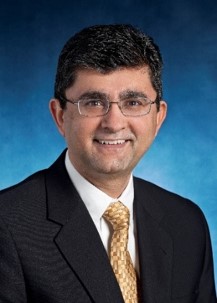
Congratulations to Dr. Junaid Razzak, Vice Chair of Research, who was recently awarded $1.16 million from the Eunice Kennedy Shriver National Institute of Child Health & Human Development at the National Institutes of Health (NIH). The award will be used for a study to assess the feasibility of implementing an ambulance-based teleconsultation (ABT) process in Karachi, Pakistan.
Dr. Razzak and his team of collaborators from the Aga Khan University, the Childlife Foundation, and Aman Health will study how ABT can help provide appropriate and timely acute and emergency telemedicine care for children in low- and middle-income countries (LMICs), who are disproportionately affected by acute illnesses, including pneumonia, diarrhea, injuries, meningitis, and malaria.
Dr. Razzak is an accomplished researcher, with a wealth of research experience in emergency medicine, medical informatics and public health and is one the few NIH funded researchers in the area of global emergency medicine. In 2021, he was recruited to Weill Cornell as the Vice Chair of Research in the Department of Emergency Medicine from Johns Hopkins University, where he served as the director of the Center for Global Emergency Care and as a tenured professor of Emergency Medicine and International Health. He also worked at the NIH as a visiting scientist, leading NIH’s Collaborative on Emergency Care Research in LMICs (CLEER). Additionally, Dr. Razzak has published more than 130 peer reviewed manuscripts on topics ranging from emergency care and vulnerable communities to innovation and technology. Currently, as part of his focus on global health, Dr. Razzak is working with Aga Khan University in Pakistan to establish the Center of Excellence in Trauma and Emergencies.
Research reported in this publication was supported by the Eunice Kennedy Shriver National Institute of Child Health & Human Development of the National Institutes of Health under Award Number R21HD103049. The content is solely the responsibility of the authors and does not necessarily represent the official views of the National Institutes of Health.


